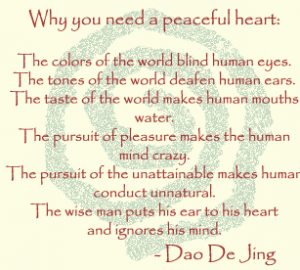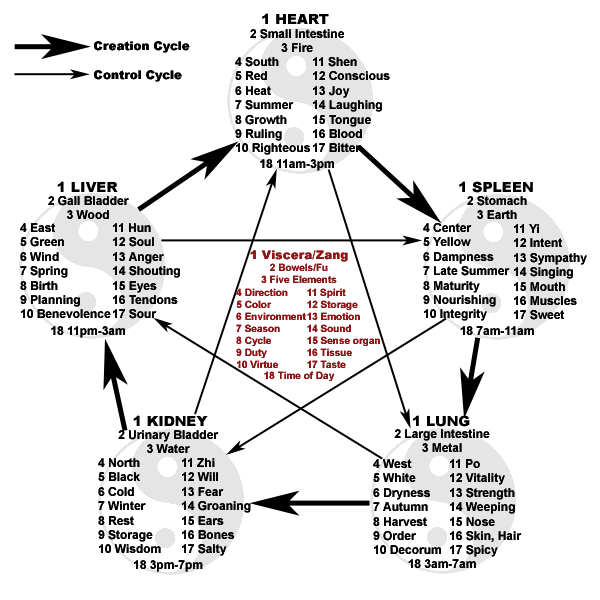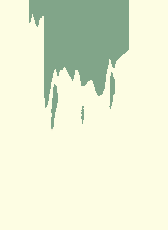Fire Element, Summer

It isn’t possible to have true health without a peaceful heart. This may seem like a strong statement, yet you have to understand the heart from the Oriental Medicine perspective for it to make complete sense.
In Oriental Medicine your heart is the “Heart” of your being – with a capital “H”. Its capacity and power extend way beyond the physical organ. It is the king of the kingdom, providing the soul force that coordinates all activity – physical, mental, emotional and Spiritual – in the the body. Oriental Medicine believes the Heart houses your Spirit or Shen, as well the “control center” for the other four aspects of the soul, each one residing in the other organ systems. These are the Yi, the aspect of the soul linked to thought and the Spleen; the Po, the physical aspect of the soul, related to the Lung; the Zhi, the soul aspect related to will power and the Kidney; and the Hun, the ethereal soul, or mental-spiritual soul aspect, related to the Liver.
While it is true that your body and its organs need energy (Qi), to power their functions, they also need to right “message.” The great task of the Heart is to provide this message, a kind of all-encompassing organizing force. Essentially, Oriental Medicine sees everything in terms of relationships, or how things interact. You must have enough Qi and all your organs must work well, in order to have good health. Yet the organs must also work well together, in harmony. Your Heart serves as a sort of master message coordinator for the organ,s receiving and relaying the countless impulses and message continually sent back and forth between hem. This means that if your Heart is troubled and is not peaceful, its function will be affected and this upset will also impact all the other organs.
The Heart is responsible, along with the Liver, for controlling blood circulation. Blood moistens and nourishes your entire body, but it also is the material basis for all mental activity, according to Oriental Medicine. Normal mental activity is reliant on sufficient blood and proper blood circulation. When Oriental Medicine speaks of the Mind, it si a much broader concept than in the West. The Mind in Oriental Medicine is not the small, chattering mind, but Mind that includes all aspects of consciousness, including thinking, intelligence, and emotions as well as memory and sleep. So Oriental Medicine would see issues such as mental problems and sleep irregularities, like insomnia and nightmares, as potentially arising from an unbalanced Heart. If the Heart does not have enough energy or blood, it cannot house your Spirit. When this is the case, you may experience an uneasy or restless feeling. Sometimes this will cause mental cloudiness and an elusive memory. Without a strong, balance Heart, these key aspects of consciousness can be dull and disturbed.
What is the best way to care your Heart? There is perhaps no greater divergence between East and West than on this point. In the West, the way to strengthen tis organ is through exercise, preferably the sweaty, cardiovascular kind. But in the East, the path to a strong, balanced Heart is to foster a peaceful, open Heart – to create a state that promotes peace in your internal and external kingdom. This can be accomplished in a variety of ways, but especially by emptying the Mind, through meditation and service.
There are specific Qigong (energy) exercises that also greatly benefit the Heart. One is practicing” Baby Heart,” cultivating the soft, pure, nonjudgmental qualities of all our Hearts when they were first born into this world. Another is “Smiling from the Heart.” By smiling directly from the Heart – not a fake smile but a true one – you can make Qi and blood flow throughout your entire body, having a profound physical and spiritual effect. Once you master smiling at yourself in this way in front of the mirror, try smiling from the Heart at others.
Ultimately, it is our responsibility to tend to our own Hearts. Accepting this responsibility for how we live and for the state of our Heart is the first step to true health. The world does distract us with its colors, its tones and tastes, yet it is our job to ignore or quiet our incessantly chattering mind, listen to our Heart, and see what it is saying to us. We must remember to always send ourselves a positive message and keep our Heart clear and loving. This is the gateway to health and beyond. The Heart’s capacity for unconditional love places us directly at the threshold of infinity.
ORIENTAL MEDICINE CONCEPTS AND TIPS
Perspiration is the “fluid” of the Heart. Perspiration comes from body fluid, and the Heart controls body fluids. If you find you are perspiring excessively it can be a signal of Qi deficiency of the Heart. On the other hand, if you engage in activities that make you sweat too much, this can cause a Qi deficiency of the Heart. Oriental Medicine advises against demanding exercises routines that leave you bathed in sweat.
The tongue is the sense organ related to the Heart. In Oriental Medicine the condition of the Heart (as well as other organs) is determined by observing the tongue. The tongue will be a healthy red color when this organ is in balance. If there is insufficient blood in the Heart, the tongue may appear pale. If there is blood stagnation, the tongue will reflect this with a dark purple color.
The blood vessels are considered the “tissues” of the Heart. Because the face has many blood vessels, the complexion reveals the state of the Heart. Like the tongue, a pale complexion can indicate insufficient blood and an overly red face can signal excessive heat.
The pericardium protects your Heart. It is actually a membranous sac that surrounds it. The pericardium can absorb excess heat. Signs of an overheated Heart are thirst (especially at night), dry mouth, yellow urine, cold sores, skin breakouts and nightmares.
Bitter is the taste associated with the Heart. If you find yourself craving bitter foods, your Heart may have an imbalance. Foods beneficial for the Heart are watermelon, plum tomatoes, broccoli and broccoli rabe.



